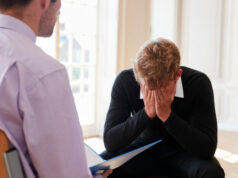Adolescent antisocial behavior and conduct disorder is a common phenomenon. Occasional dramatic episodes and outbursts towards parents and other authority figures tend to be a very natural part of growing up.
Nevertheless, at what point in time does antisocial behavior become a deeper problem?
First, we must identify what is considered a normal sullen teenage behavior, and we must also note what could be a potentially dangerous mental health issue.
What are the indicators of Adolescent Antisocial Behavior?
Antisocial behavior is made up of things such as bullying, fighting in school, angry yelling, cheating on an exam, talking back to parents, and many other problems with conduct.
There is also a broad range of elements that actively contributes to antisocial behavior such as uncomfortable social situations, peer rejection, peer pressure, and other external factors that teenagers feel they cannot escape.
Most of the time, when teenagers act out, their behavior is easily dismissed and considered a ‘phase’ that they will grow out of eventually.
This is not the case all the time and is something that must be monitored just in case your teenager or young adult needs some professional help.
If you notice that your teenager begins to exhibit any of the behaviors listed below, then it may be time for you to seek professional help:
- Mood swings
- Impulsive behavior
- Little or no remorse for actions
- Carelessness
- Hurting self or others
- Lack of empathy
- Skipping school or running away
Adolescents who exhibit these behaviors we have mentioned may also be dealing with a conduct disorder (CD). This means that children and adolescents who act out in this way can be viewed as reckless, dangerous, or unpredictable.
Conduct problems can arise from or be tallied with adolescent antisocial behavior, which 8s what makes it essential to be on alert and on the lookout for all the warning signs before your kid reaches extremes.
What are the things that contribute to antisocial behavior or conduct disorder?
There is a wide range of contributing factors for antisocial behavior or conduct disorders in teenagers and young adults.
Therefore, we need to look at every aspect of a situation and also assess any and every element that may be a contributing factor to a child’s behavior.
A few significant factors that usually lead to antisocial tendencies and conduct disorders are:
- Unstable home
- Sexual abuse
- Neglect or lack of supervision
- Isolation from peers; few (if any) friends
Traumatic experiences can also contribute significantly to conduct disorders. Furthermore, in a few cases, antisocial behavior can serve as a defense mechanism.
Rather than working through trauma, what antisocial behavior does is to suppress the memory.
With the fact that the many causes of this disorder are unique to each teenager, one must take many factors into account. Also, there are over 32,000 different combinations of symptoms that can point to a conduct disorder.
As a result, treatment has to be tailored to fit the exact needs of each teenager.
Treatment Options for Adolescent Antisocial Behavior
It is not rare to have cases of young adults being resistant to treatment. Thus, traditional means of treatment might be difficult for teenagers with CD.
There are many known approaches to teaching teenagers and young adults problem-solving and interpersonal skills. With family and group-centered therapy, teens who often are unable to interact will learn and find help.
This may also provide them with a chance to discuss the issues at hand and find constructive ways to cope.
It is mostly a Family Affair
Parents and siblings who do not know the best way to react to a child, brother, or sister with CD or other antisocial behaviors may become angry or nervous.
Therefore, for a teenager with antisocial behavior to change, the parent has to change as well. This is especially useful when long-term results are due to how the parents work with the child.
What this means is that all parties need to understand the relevance of change. Moreover, when the whole family is included in one person’s healing process, things become much more comfortable and can be seen as a step in the right direction.
Indeed, this kind of inclusion results in an integration of the teen’s healing process. Hence, the integration turns into a tool that addresses the teen’s antisocial behavior. When they see their whole family involved, a teen can connect to the positive emotions.
After all, we have been informed by people with experience that being loved and valued is an effective remedy for antisocial behavior.
Asides anti-social behavior in teens, there is also the issue of adult antisocial behavior. Below is everything you must know about adult antisocial behavior.
We hope you found this article helpful? Please leave a comment below.












